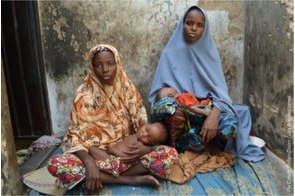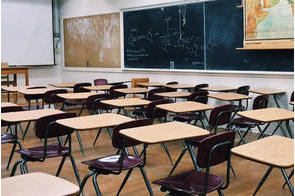Access Bank drives financial e-learning for kids amid COVID-19

Summary
Access Bank said the educative and informative games would help develop children's financial literacy and mental capabilities. Through its award-winning sustainability strategy, Access Bank continues to support the development and wellbeing of children through various initiatives.
The coronavirus disease (Covid-19) pandemic has affected the health and well-being of people throughout the world. It has caused an economic crisis on a global scale due to the lockdowns put in place by governments as precautionary measures to protect the public against the spread of the disease, scientifically called SARS-CoV-2. Implementing the measures has entailed the closure of businesses, events and schools.
After several weeks of physical distancing measures, there is still an uncertainty about when the pandemic would end to enable normal life to restart. Many businesses have had to devise ways to continue to operate remotely using modern communication technology tools. There has also been the need for children to continue to be engaged and learn while they are at home.
To ensure that Nigerian kids are not left behind in acquiring and improving much-needed financial literacy, Access Bank partnered 9ijakids, a Nigerian education technology (EduTech) company, to deliver online financial literacy through educational gamification to children.
9ijakids provides an educational tool that complements traditional classroom learning. The company incorporates educational gamification concept that entails the integration of games into educational environment, enabling participants to learn with fun and increase their motivation to acquiring knowledge.
Access Bank, Africa's largest bank by customer base, launched the children’s e-learning initiative in partnership with 9ijakids on April 10, 2020, with six gamified educational learning modules hosted on the bank’s website. The modules are Kiddiepreneur 101, Solve that Problem, Who Wants to Be a Brainiac, Nigerian Facts, Timmy In Charge and 9ija Citizenship Test. According to Access Bank, the top five players on the leaderboard stand a chance to win exciting prizes. The winners are announced three times every week.
As of the penultimate week of April, 30 winners had emerged, with 605 children having participated in the games. The bank also reported that over 8,241 people were reached on its social media platforms through the programme, which is expected to run for over a period of twelve weeks.
Access Bank said the educative and informative games would help develop children's financial literacy and mental capabilities. Through its award-winning sustainability strategy, Access Bank continues to support the development and wellbeing of children through various initiatives.
The initiatives help in encouraging young people to improve their financial literacy, which is critical to future financial security. Access Bank believes that empowering young people by investing in their knowledge acquisition, improving their financial literacy capabilities, and also developing products and services that foster a savings habit in children is a key approach to a future that is financially secure.
One of such products of the bank's that is tailored for kids is the Early Savers Account. The new kids' educational gamification initiative is linked to this account in such a way that the prizes for winners are redeemed through the Early Savers Account. The aim is to further encourage an early savings culture among children.
In a statement sent to Financial Nigeria, Access Bank said, “This initiative reinforces the Bank’s sustainability leadership and its commitment to driving financial inclusion and literacy. In doing so, the Bank will continue to leverage on the growing need to create financial solutions that are capable of meeting the current financial challenges through the use of modern technology.”
Amid the Covid-19 pandemic, Access Bank has also demonstrated its commitment to sustainability, particularly with regard to safeguarding public health in communities where it operates. The bank partnered with Aliko Dangote Foundation (ADF) and other participants to launch the Private Sector Coalition Against COVID-19 (CACOVID) in March. Part of this Covid-19 response initiative, which also entails collaborating with the Lagos State Government and the Nigeria Centre for Disease Control (NCDC), involves setting up testing, isolation, treatment and training centres in four high-risk locations in the country.
As of the end of April, Nigeria had reached a Covid-19 testing capacity of 2,500 per day. Diagnostic laboratories had increased to 18, from 11 at the end of March. In the same period, Nigeria also recorded 1,932 confirmed cases of coronavirus infections and 58 fatalities.
Related
-
Education will help Africa overcome its development challenges
Governments must enforce the right of every child to quality education and learning.
-
Students not getting remedial programmes post-Covid-19 school closures
In 2020, schools worldwide were fully closed across all four education levels for 79 teaching days on average.
-
Samsung seeks partnerships to improve access to quality education in Africa
Samsung believes that digital technology can transform the learning process.










